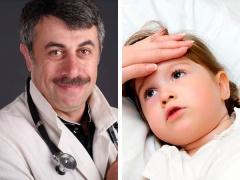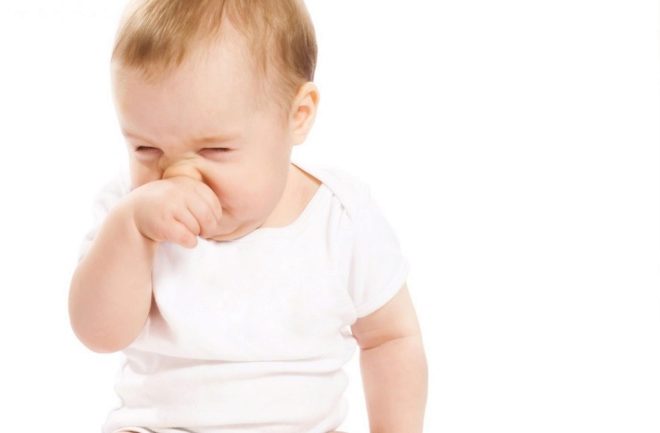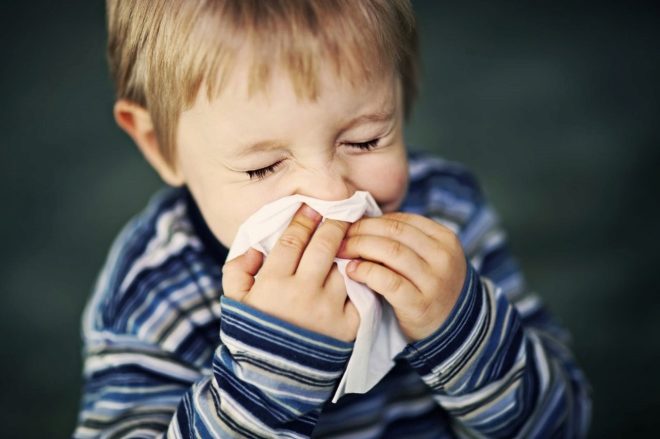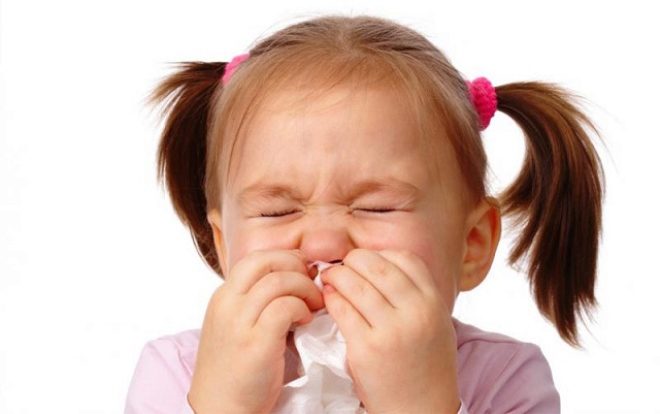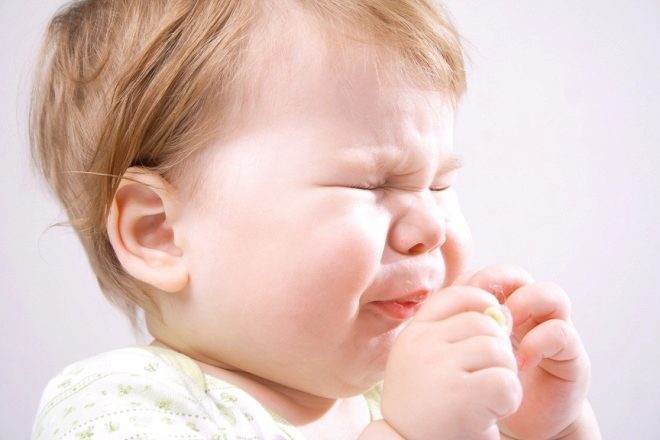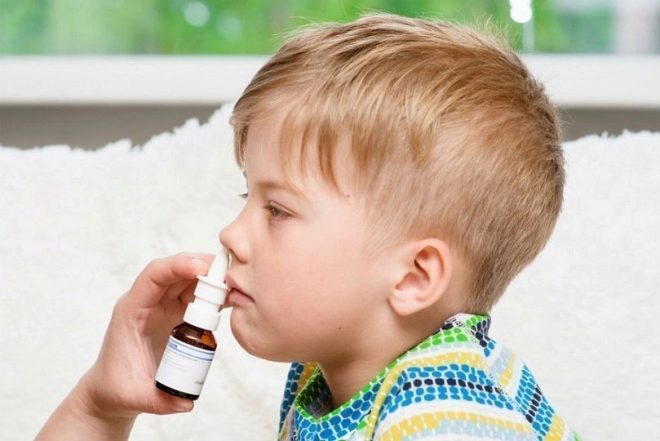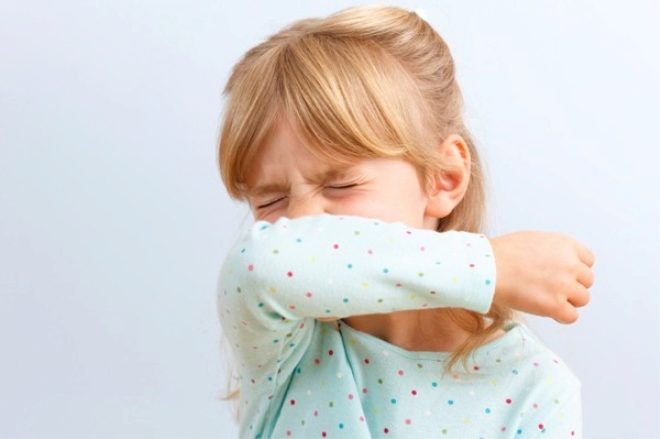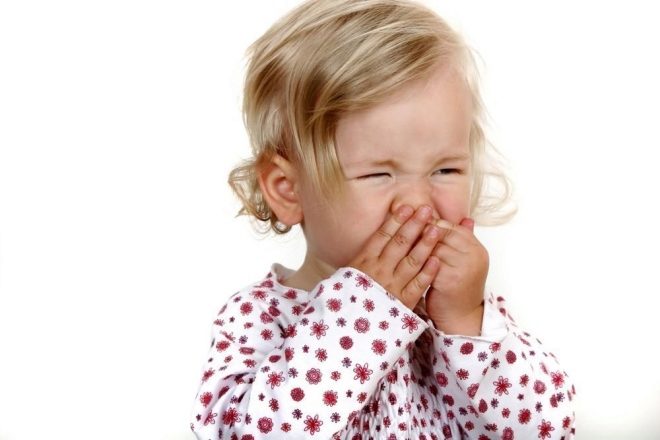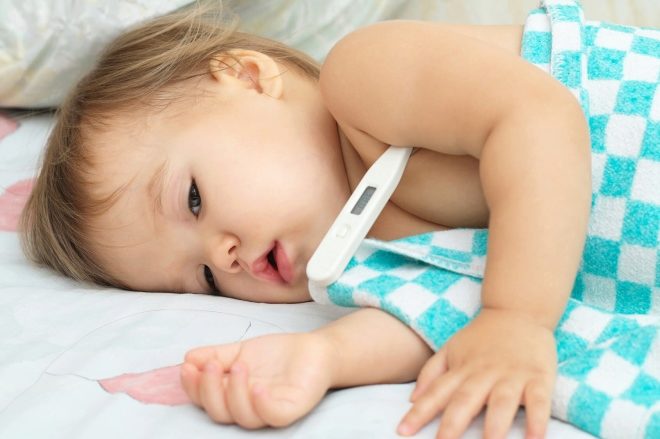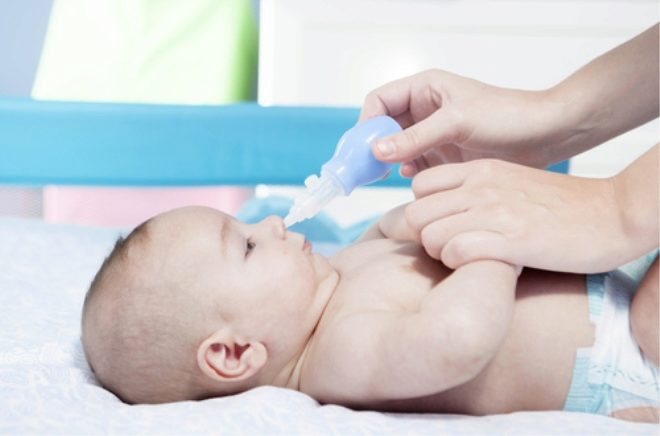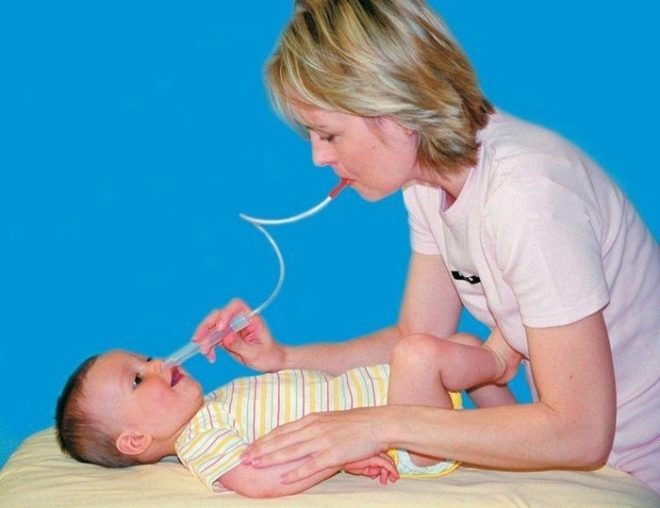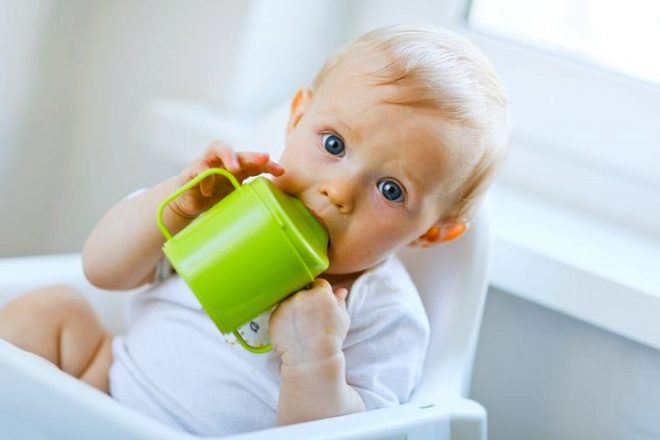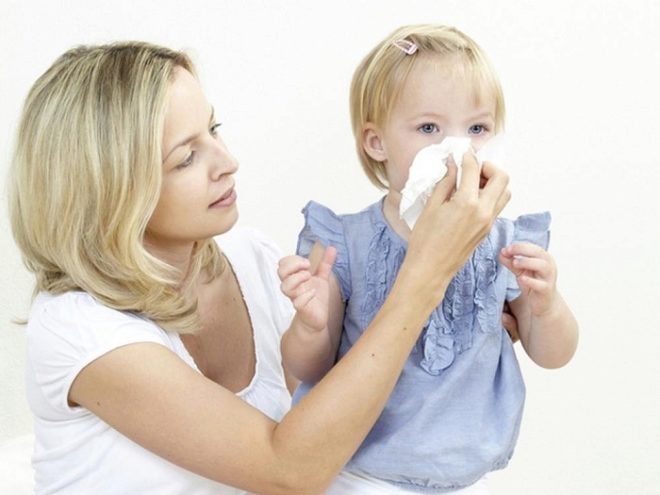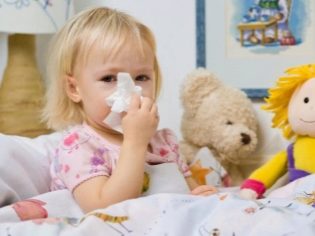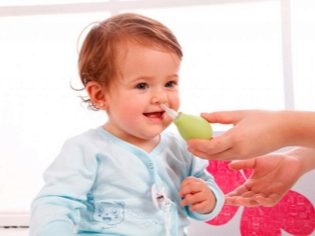Dr. Komarovsky about what to do if the nose is stuffed up but no mucus
When the child has a stuffy nose, parents immediately begin to look for the causes of a cold. And frankly they guess when it turns out that the child’s picture of the disease does not fit into the general concept of rhinitis - there is congestion, but there is no mucus.
Evgeny Komarovsky, a well-known pediatrician, TV host and author of books on children's health, talks about what this could mean and how to deal with it.
About the problem
Dry nasal congestion in medicine is called "posterior rhinitis." This condition is more dangerous than any runny nose, accompanied by discharge, because it can indicate a serious "malfunction" in the ENT organs.
Congestion is associated with swelling of the mucous membranes, and the absence of mucus in this case indicates the non-infectious nature of the disease. If the runny nose is caused by viruses, it will be necessary to flow from the nose, so the body takes out foreign "guests". Dry congestion most often, according to doctors, caused an allergic reaction, a foreign body that is stuck in the nasal passages. This condition is also characteristic of children with congenital or acquired curvature of the nasal septum, in which nasal breathing as a whole is significantly impaired.
Sometimes a runny nose without discharge - a sign that the child has dried mucus in the back, this was the cause of swelling. In rare cases, dry rhinitis is a symptom of heart and circulatory problems.
A dry runny nose can also be medicamental, usually children who are parents for too long, contrary to all the prescriptions of doctors and common sense, have suffered from ordinary rhinitis with vasoconstrictor nasal drugs.
If a child accidentally inhaled a piece of food, a crumb, a small detail from a toy, then it is most likely that he will have only one nasal passage, the second nostril will breathe without problems.
Danger
The main danger of nasal congestion without mucus secretion is possible nasal atrophy of the nasal passages mucosa. This can happen if the problem was ignored or the condition was treated incorrectly. It is possible the development of secondary diseases of the nasopharynx, which will cause irreversible changes in the tissues of the respiratory system.
In children with a dry rhinitis, sleep is usually disturbed, neurosis develops due to lack of sleep, they become restless and nervous. If the cause is pathological (and only a doctor can determine this), not treated back rhinitis can cause deterioration of smell and hearing loss.
Dry congestion disrupts cerebral circulation. With a prolonged absence of nasal breathing, severe disturbances in the workings of the vessels of the brain can develop.
Dr. Komarovsky about the problem
Evgeny Komarovsky looks a bit more optimistic at the problem of dry nasal congestion than most of his colleagues. According to a reputable doctor, 80% of cases of a runny nose without snot are a consequence of excessive parental care. In other words, mothers and fathers create greenhouse conditions for children: it’s hot at home, you cannot open windows, “because there’s a small child at home”, you shouldn’t walk in cool and windy weather, because “a baby can get sick”.
Violation of temperature in the compartment with excessively dry air in the apartment leads to drying out of the mucous membrane of the nasal passages. The system of mucus outflow is disturbed, puffiness is formed, and as a result, the nose does not breathe.
Komarovsky encourages parents to more closely monitor the child, if there are no other symptoms of ill health, except for stuffiness, you should not worry too much.
It is enough to create a child with the "right" conditions for a normal life: according to the doctor, the air temperature in the apartment should not be above 19 degrees, the humidity of the air - 50-70%.
In the house it is necessary to do wet cleaning more often, to air the room. The child should often walk, walks should be as long as possible to the age of the toddler.
Often, with the dry stuffiness of the nose, the well-known flu and ARVI begin, Komarovsky says. In this case, the reaction of the nasal passages is a protective mechanism. Usually, after a day or two dry runny nose with a viral infection necessarily becomes wet.
Infants with a dry cold - a phenomenon quite common. Beat the alarm is not worth it, says Yevgeny Komarovsky. The child adapts, adapts to the environment, and therefore the congestion of the nasal passages (which are already very narrow in infants) is a variant of the norm. The mucous membranes in newborns dry up also because the posterior part of the nasal passages is narrowed, because of this, the crumbs often sleep with an open mouth. Usually, the symptom passes on its own and without the use of any medication within 2-3 weeks of independent life of the crumbs outside of my mother's tummy.
How to treat a runny nose will tell Dr. Komarovsky in the next video.
Allergic dry rhinitis is not as common in children as manufacturers of expensive allergy medications pose a problem, Komarovsky says, as indeed, congenital deformity of the nasal septum is rare. This pathology is generally seen from the first days of life, and the mother will be informed about it, if not in the maternity hospital, then at the first examination by a pediatrician.
How to find the cause of an allergic rhinitis, how it differs from an infectious rhinitis, Dr. Komarovsky will tell in the video below.
Komarovsky advises to think about a foreign body in the nose, first of all, if the child is already walking and actively exploring the world. Already at least for this you need to visit the ENT doctor internally.
Children of the year quite often inhale various trifles, but parents cannot tell about the incident. In this situation, without a qualified professional help is not enough.
Treatment
If congestion without mucus is caused by drying out of the latter in the posterior nasal passages, no specific treatment is required, Komarovsky says. Optimal environmental conditions, as mentioned above, and sometimes - washing the nose with sea water or a weak saline solution. This medication is safe, non-toxic.
The main condition - instillation should not be three times or four times. Komarovsky says that salt-water procedures will be effective only when parents do not become lazy and start to drip into the baby’s nose every 20-30 minutes, except for bedtime, of course.
But dripping baby vasoconstrictor drops Yevgeny Olegovich does not advise in the nose without extreme necessity (without appointment).
Firstly, they cause persistent drug addiction, and secondly, the benefits of them are temporary, the nasal congestion necessarily returns when the effect of the drug ends. If the doctor prescribed such drops ("Nazivin", "Nazol", etc.), then it is not necessary to drop them more than three days in a row. This is not a recommendation, but an imperative.
Komarovsky advises to begin treatment with cleaning the respiratory tract from the dried crusts of mucus. To do this, parents can use the aspirator or do the washing.
If there is an inhaler at home, the child can be inhaled with essential oils and decoctions of herbs such as chamomile, sage.
Mandatory condition for recovery - abundant drinking regime. To the mucous does not dry out, the child needs to drink a lot.Dr. Komarovsky recommends giving the baby more water without gas, tea, compotes, herbal infusions, decoctions.
It is important to remember that the child needs an abundance of fluid not only during the illness, but also in health too. Then these diseases themselves, such as dry and wet rhinitis, will cough significantly less, and illnesses will be much easier.
If a dry stuffiness in a child occurs due to allergiesAnd this was confirmed by the doctor and laboratory tests, then the main treatment, according to Komarovsky, will be to completely isolate the toddler from the antigen to which the inadequate response of the body has arisen. In addition, it would be better if mom and dad put the offspring on a hypoallergenic diet and ensure that the house does not have animal hair, dust deposits, and household chemicals based on chlorine.
Tips
To humidify the air in the apartment where the child lives is best done with a humidifier. But this device is quite expensive, and therefore, if the family budget does not have funds for its purchase, you can place small containers with water in the corners to evaporate, you can buy an aquarium with fish, put wet towels or pillowcases over the batteries and wet them regularly. The latter is especially relevant in the winter, when the batteries are heated and further dried the air.
Do not make the child inhalation over a bowl of boiling water. Komarovsky encourages parents to prudence, and recalls that such procedures can cause burns to the mucous membranes. It is best to do inhalation using a special inhaler or a device with a fine spray - nebulizer.
In case of dry rhinitis, which does not give in to the above-mentioned home methods of therapy, Komarovsky advises to be examined by a pediatrician, an ENT specialist, an allergist, and a blood test for antibodies and allergy tests must be taken. It can only cure congestion, he recalls, only when it is possible to find and cure the cause of its occurrence.
